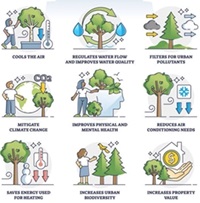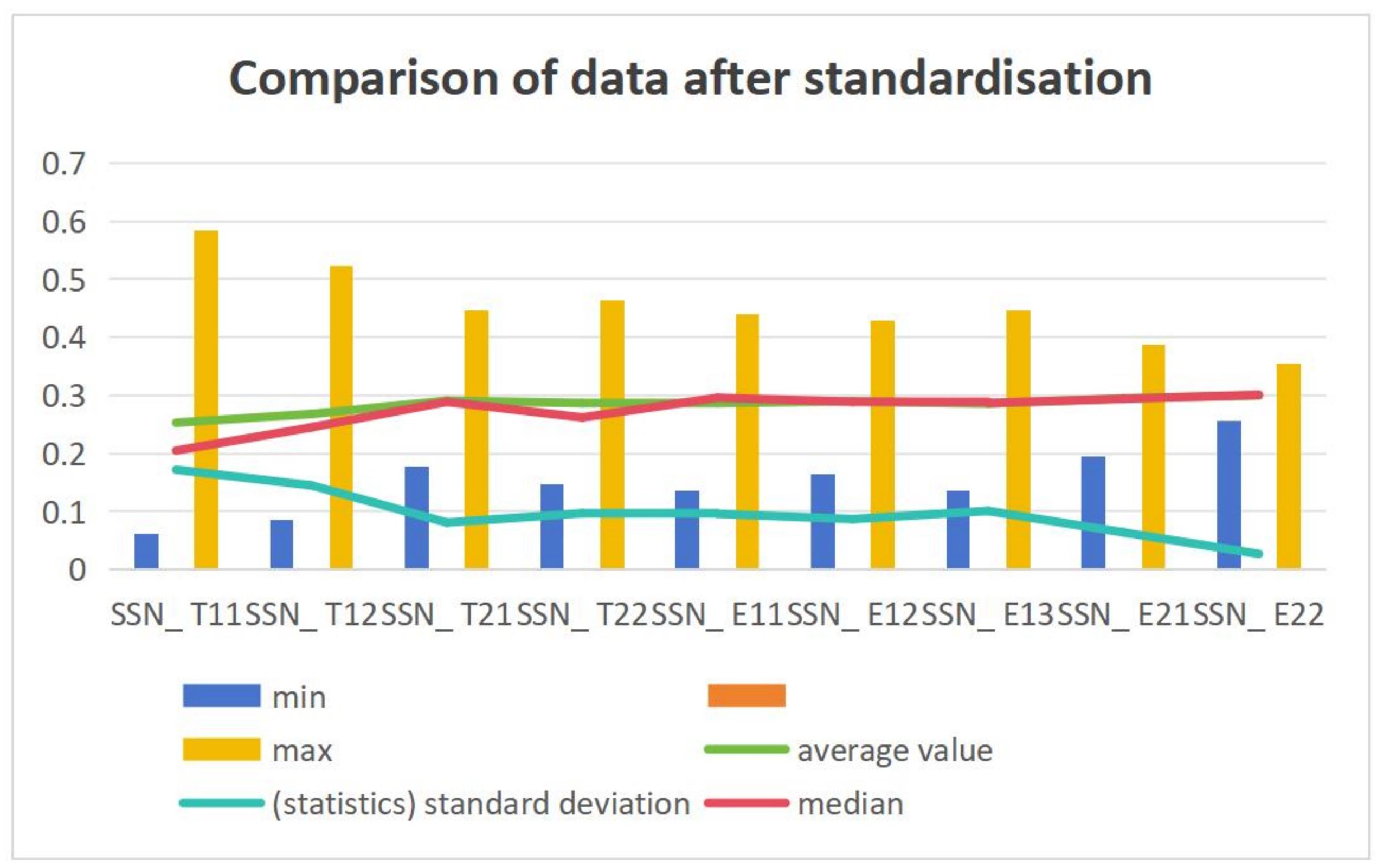


Analysing the drivers of smart city implementation using DEMATEL method
Vol 4, Issue 2, 2023
Download PDF
Abstract
Indian cities are becoming more and more populated, and the technological, environmental, social, political, and economic infrastructure of those cities is deteriorating, necessitating the development of more innovative methods to enhance public utilities and services. The growth of smart cities encourages the creation of a stable, networked, and sustainable metropolitan structure. The “100 Smart Cities Mission” was started by the Indian government to encourage planned development. However, there is also a literature of criticisms of the indicators used by the smart city mission. A thorough investigation is necessary to identify the critical infrastructure, important resources, and development patterns for smart city planning. The purpose of my study is to achieve and move towards Smart City Mission goals in a holistic framework. This research paper proposes a weighted criteria to assess the eligibility factors identified from the literature studies of the Smart City Mission, to analyze the complex relationships among the indicators, to develop a holistic approach, and to classify factors based on the drivers of dependence and implementation. The findings of this study shed light on the key drivers and barriers to the implementation of smart city initiatives. The DEMATEL method provided a valuable tool for analyzing the complex interrelationships between different factors and identifying the most influential drivers. The results can guide policymakers, city managers, and other stakeholders in developing more effective strategies for smart city implementation. However, the study also highlights the need for further research to explore the context-specific factors that may affect the drivers of smart city implementation in different regions and cities. Overall, this study contributes to the growing body of literature on smart cities and provides practical insights for decision-makers seeking to promote sustainable and inclusive urban development.
Keywords
References
- Kumar H, Singh MK, Gupta MP. A policy framework for city eligibility analysis: TISM and fuzzy MICMAC-weighted approach to select a city for smart city transformation in India. Land Use Policy 2019; 82: 375–390. doi: 10.1016/j.landusepol.2018.12.025
- Bajpai N, Biberman J. India’s smart city program: Challenges and opportunities. Available online: https://academiccommons.columbia.edu/doi/10.7916/d8-fqj2-bp76 (accessed on 1 June 2023).
- Roy S. The smart city paradigm in India: Issues and challenges of sustainability and inclusiveness. Social Scientist 2016; 44(5/6): 29–48.
- BW online Bureau. impact of building a smart city on the environment. In: The Smart City in a Digital World. Emerald Group Publishing; 2019.
- Vyas M. Will smart cities impact Indian economy? Available online: https://www.linkedin.com/pulse/smart-cities-impact-indian-economy-dr-maulik-vyas (accessed on 1 June 2023).
- Suresh P, Ramachandran S. Development of smart cities in India—Dream to reality. Scholedge International Journal of Business Policy & Governance 2016; 3(6): 73. doi: 10.19085/journal.sijbpg030601
- Eremia M, Toma L, Sanduleac M. The smart city concept in the 21st century. Procedia Engineering 2017; 181: 12–19. doi: 10.1016/j.proeng.2017.02.357
- Aggarwal T, Solomon P. Quantitative analysis of the development of smart cities in India. Smart and Sustainable Built Environment 2019; 9(4): 711–726. doi: 10.1108/sasbe-06-2019-0076
- Razmjoo A, Østergaard PA, Denaï M, et al. Effective policies to overcome barriers in the development of smart cities. Energy Research & Social Science 2021; 79: 102175. doi: 10.1016/j.erss.2021.102175
- Dhere V, Bendale U. Impact of smart city on social relations. International Journal of Innovative Technology and Exploring Engineering 2019; 8(6): 1435–1437.
- Anand PB, Navío-Marco J. Governance and economics of smart cities: Opportunities and challenges. Telecommunications Policy 2018; 42(10): 795–799. doi: 10.1016/j.telpol.2018.10.001
- Pricope LN. The global liveability index and smart cities across Europe. Annals of Dunarea de Jos University of Galati Fascicle I Economics and Applied Informatics 2022; 28(3): 81–89. doi: 10.35219/eai15840409291
- Chandran S, Thiruchelve SR, Dhanasekarapandian M. Integrated urban water resources management strategy for a smart city in India. Water Supply 2020; 21(2): 736–749. doi: 10.2166/ws.2020.325
- Murphy D. The landscape of financing strategies for adaptation in developing countries IISD REPORT. Available online: https://www.iisd.org/system/files/2022-08/financing-strategies-for-adaptation-developing-countries.pdf (accessed on 1 June 2023).
- Dwivedi G, Gomes K. 7 Years of Smart Cities Mission, India: A Review. Centre for Financial Accountability; 2022.
- Rani S, Kumar R. Bibliometric review of actuators: Key automation technology in a smart city framework. Materials Today: Proceedings 2022; 60: 1800–1807. doi: 10.1016/j.matpr.2021.12.469
- Beniwal R, Kalra S, SinghBeniwal N, et al. Smart photovoltaic system for Indian smart cities: A cost analysis. Environmental Science and Pollution Research 2023; 30(15): 45445–45454. doi: 10.1007/s11356-023-25600-w
- Hoque A, Prakash S. Analysis of status and performance of smart city mission in India: An overview. Journal of Trend in Scientific Research and Development 2023; 7(1): 448–453.
- Venter C. Smart city infrastructure development. In: Smart Cities Technologies. Springer; 2017.
- Moayedi H, Mokhtar M. An overview of smart city infrastructure and its role in achieving sustainability. Journal of Cleaner Production 2020; 252: 119860.
- Nam T, Pardo TA. Smart city as urban innovation: Focusing on management, policy, and context. In: Proceeding of the 5th International Conference on Theory and Practice of Electronic Governance; 26–29 September 2011; Tallinn, Estonia. pp. 185–194. doi: 10.1145/2072069.2072100
- Giffinger R, Fertner C, Kramar H, Meijers E. Smart cities—Ranking of European medium-sized cities. Available online: https://www.smart-cities.com/download/city_ranking_final.pdf (accessed on 1 June 2023).
- Kourtit K, Nijkamp P, Arribas-Bel D. Smart cities in perspective: A comparative European study by means of self-organizing maps. Technological Forecasting and Social Change 2019; 142: 56–69.
- Zhong Y, Huang G, Zhang Y. A dynamic perspective on smart city development. Journal of Urban Technology 2017; 24(1): 3–19.
- Caragliu A, Del Bo C, Nijkamp P. Smart cities in Europe. Journal of Urban Technology 2011; 18(2): 65–82. doi: 10.1080/10630732.2011.601117
- Anthopoulos LG, Fitsilis P. A survey on smart city initiatives in Europe. Journal of Urban Technology 2016; 23(1): 3–21.
- Alawadhi S, Al-Khalifa HS. Addressing privacy concerns in smart city applications: A survey. IEEE Communications Magazine 2015; 53(5): 38–44.
- Kshetri N. Privacy and security issues in smart cities. Communications of the ACM 2014; 57(9): 74–83.
- Komninos N. Intelligent cities: Variable geometries of spatial intelligence. Intelligent Buildings International 2013; 5(3): 139–155.
- Lee JH, Phaal R, Lee SH. An integrated service-device-technology roadmap for smart city development. Technological Forecasting and Social Change 2013; 80(2): 286–306. doi: 10.1016/j.techfore.2012.09.020
- Ficco M, Rak M, Russo W. Smart cities and the challenge of interoperability. In: Smart Cities and Smart Spaces: Concepts, Methodologies, Tools, and Applications. IGI Global; 2018. pp. 23–39.
- Lee JH, Hancock MG, Hu MC. Smart city as urban innovation: Focusing on management, policy, and context. In: Proceedings of the 5th International Conference on Theory and Practice of Electronic Governance; 26–29 September 2011; Tallinn, Estonia. pp. 185–194. doi: 10.1145/2072069.2072100
- Huguenin-Virchaux L, Meijer A. Governing the smart city: A review of the literature on smart urban governance. International Review of Administrative Sciences 2018; 84(4): 701–719.
- Deakin M, Reid A. From intelligent to smart cities. Journal of Urban Technology 2016; 23(1): 3–21.
- Hollands RG. Critical interventions into the corporate smart city. Cambridge Journal of Regions, Economy and Society 2015; 8(1): 61–77.
Supporting Agencies
Copyright (c) 2023 Kaushiki Shankar Gohil, Shefali Srivastava
License URL: https://creativecommons.org/licenses/by/4.0/

This site is licensed under a Creative Commons Attribution 4.0 International License (CC BY 4.0).

Chinese Academy of Sciences, China
Indexing & Archiving
Asia Pacific Academy of Science Pte. Ltd. (APACSCI) specializes in international journal publishing. APACSCI adopts the open access publishing model and provides an important communication bridge for academic groups whose interest fields include engineering, technology, medicine, computer, mathematics, agriculture and forestry, and environment.



.jpg)

.jpg)



